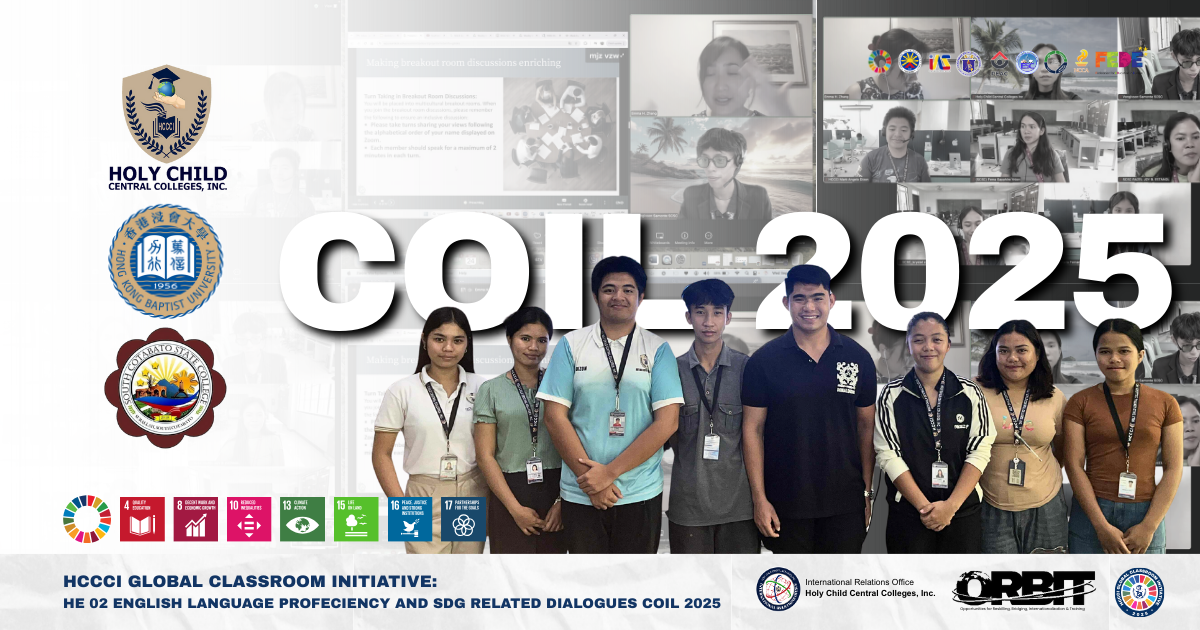𝐇𝐂𝐂𝐂𝐈, 𝐇𝐊𝐁𝐔, 𝐚𝐧𝐝 𝐒𝐂𝐒𝐂 𝐋𝐚𝐮𝐧𝐜𝐡 𝐂𝐎𝐈𝐋 𝟐𝟎𝟐𝟓: 𝐆𝐥𝐨𝐛𝐚𝐥 𝐂𝐥𝐚𝐬𝐬𝐫𝐨𝐨𝐦𝐬 𝐨𝐧 𝐄𝐧𝐠𝐥𝐢𝐬𝐡 𝐏𝐫𝐨𝐟𝐢𝐜𝐢𝐞𝐧𝐜𝐲 𝐚𝐧𝐝 𝐒𝐃𝐆 𝐃𝐢𝐚𝐥𝐨𝐠𝐮𝐞𝐬
The Collaborative Online International Learning (COIL) program titled The 02 English Language Proficiency and SDG-Related Dialogues was formally launched this September under the leadership of Hong Kong Baptist University (HKBU), in partnership with Holy Child Central Colleges, Inc. (HCCCI) in the Philippines and South Cotabato State College (SCSC). Spearheaded by HKBU, this groundbreaking initiative positions dialogue and intercultural learning as central tools in preparing students to become globally engaged citizens. For HCCCI, which runs the initiative locally through its Global Classroom Initiative (HGCI) under the Opportunities for Reskilling, Bridging, Internationalization, and Training (ORBIT) Program, the partnership demonstrates the power of international collaboration to bring global conversations directly into the classrooms of South Cotabato.
To make this global classroom possible, HCCCI maximized its Innovation Laboratory (iLab) and Smart Classroom facilities, which allowed seamless virtual collaboration with HKBU and SCSC. The iLab provided students with interactive tools and reliable digital platforms to connect across borders, while the Smart Classroom ensured that discussions unfolded in an environment equipped with high-definition conferencing technology, real-time collaboration software, and adaptive learning resources. By integrating these advanced facilities, HCCCI demonstrated how technology can bridge geographic divides, making internationalization not only aspirational but also practical and sustainable within its local campus.
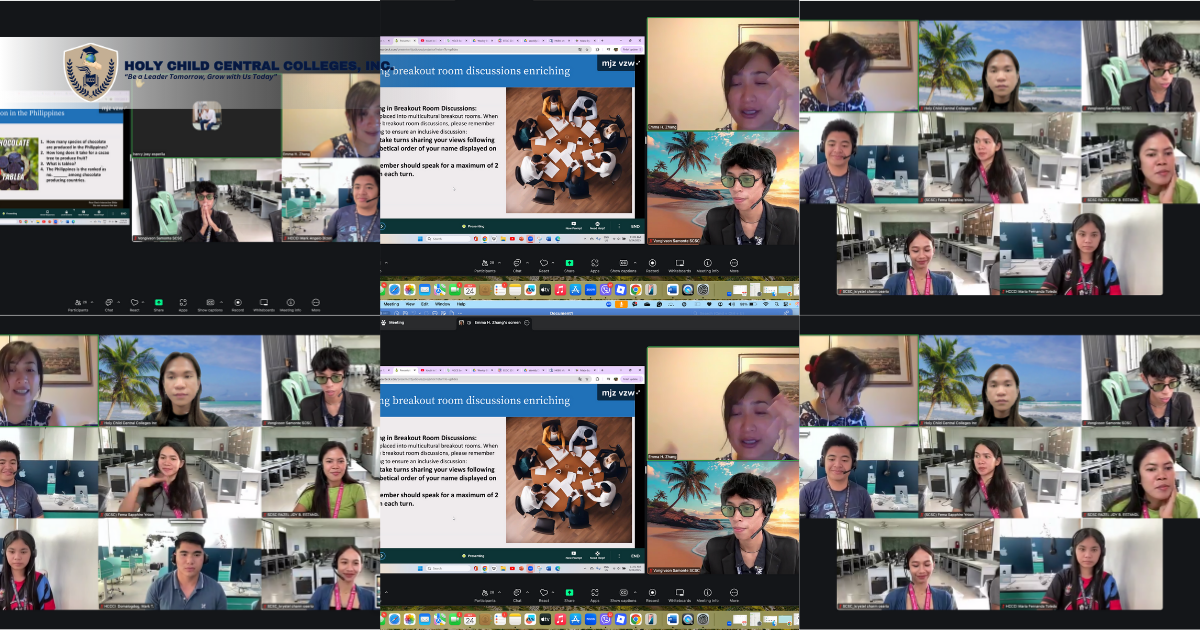
The opening dialogue, held on September 24, 2025, convened fifty-five students: twenty-five from HKBU, fifteen from HCCCI, and fifteen from SCSC. The participants came from a wide variety of disciplines. HCCCI’s representation included students from the College of Education, the College of Business and Accountancy, and the College of Computer Studies, while SCSC was represented by Tourism and Development Communication majors. HKBU, serving as the international anchor institution, brought in a cohort of students whose perspectives were grounded in the dynamics of global consumption and trade in one of Asia’s most important financial and cultural centers. This mix of disciplines and cultural contexts enriched the dialogue, ensuring that the conversation reflected both local realities and global challenges.
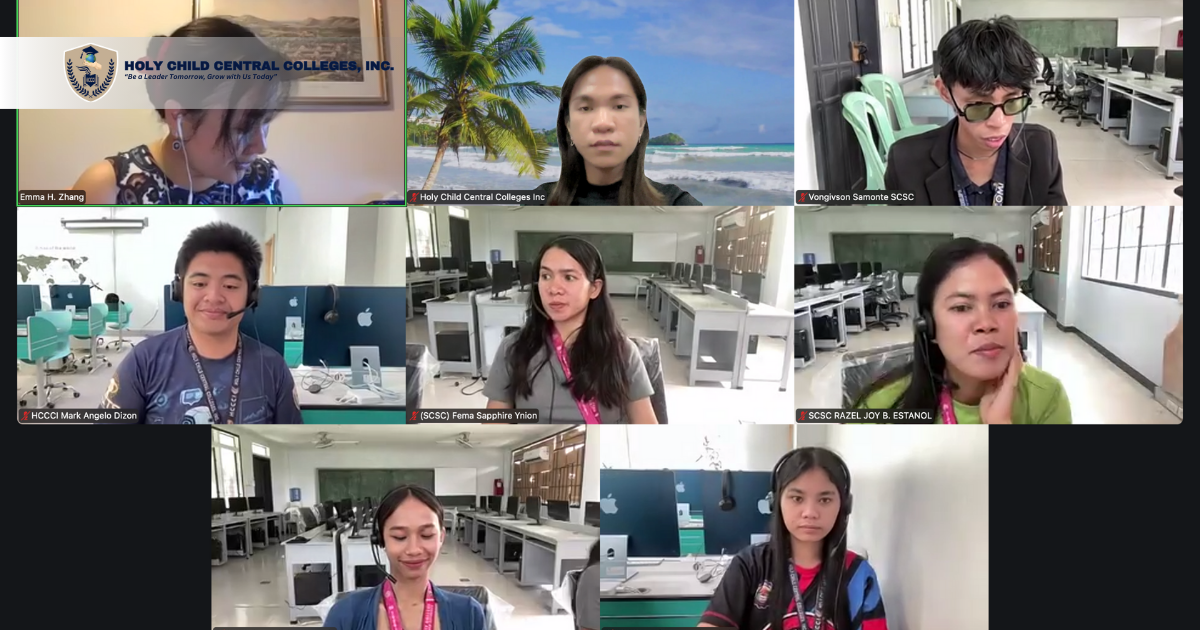
The inaugural theme focused on Sustainable Consumption in Cacao Production. The Philippines, as a leading cacao producer in Southeast Asia, faces the realities of low farmer incomes, environmental pressures, and global market dependency. Hong Kong, on the other hand, represents the consumption side of the equation, where purchasing choices and consumer advocacy directly influence global supply chains. With HKBU guiding the session, students were able to view cacao production not only as a matter of agriculture and trade but also as a question of justice, fairness, and sustainability in a deeply interconnected world.
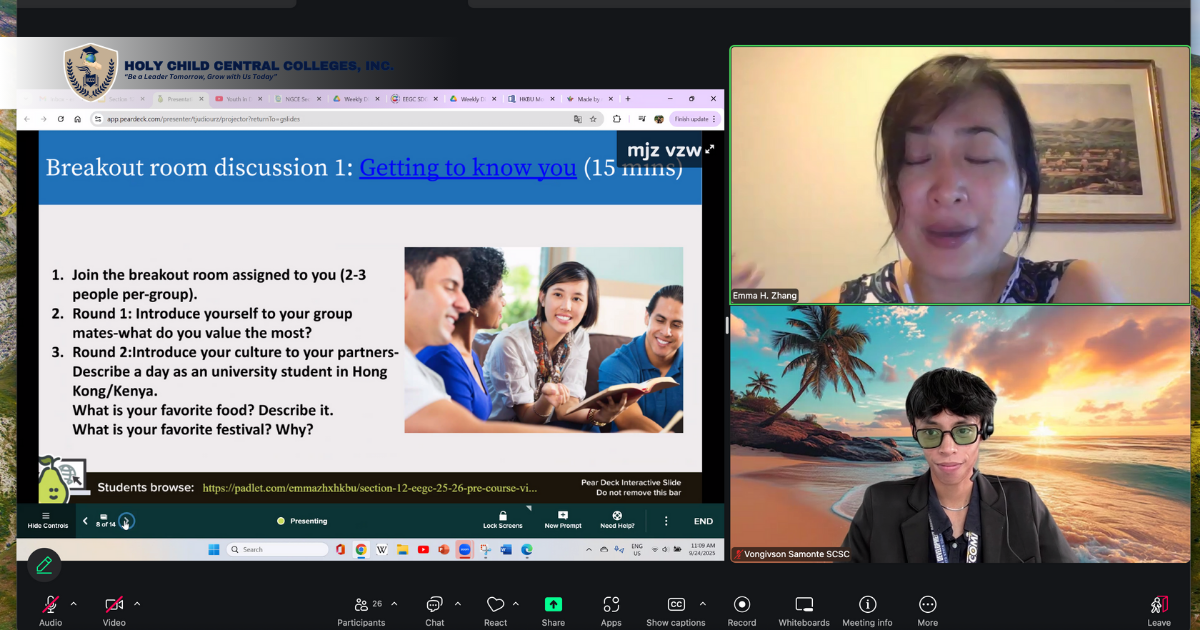
HCCCI students described the session as eye-opening. One education major remarked, “I never thought that something as simple as the chocolate we eat could carry such big questions about justice. Talking with students from Hong Kong showed me that what we consume here and abroad is truly connected.” A business student added, “It made me realize that sustainability is not just a business strategy but a responsibility. Farmers work so hard, yet they earn so little. This dialogue made me want to think about how future business leaders like us can create change.” A computer studies participant echoed this sentiment, saying, “Even in technology, we can innovate for sustainability. Hearing about the struggles of farmers pushed me to imagine how digital solutions can support fair trade and traceable supply chains.”
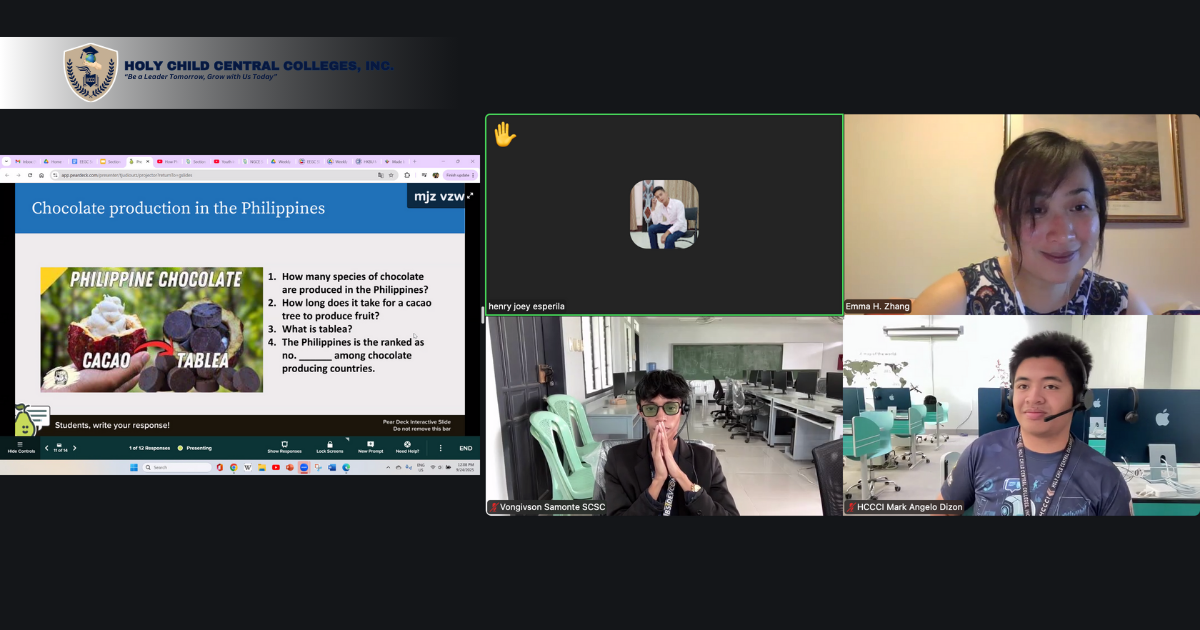
The discussions explored a host of interrelated issues: the economic marginalization of smallholder farmers, the environmental impact of cacao farming practices, the ethical responsibilities of consumers, and the urgent need for sustainable markets. Readings and structured questions provided the foundation for reflection, pointing to global realities such as Ghanaian cacao farmers surviving on less than half a dollar a day despite their role in a billion-dollar industry. Such realities sharpened the dialogue, compelling students to reflect not only on distant global concerns but also on the lived realities of their own communities.
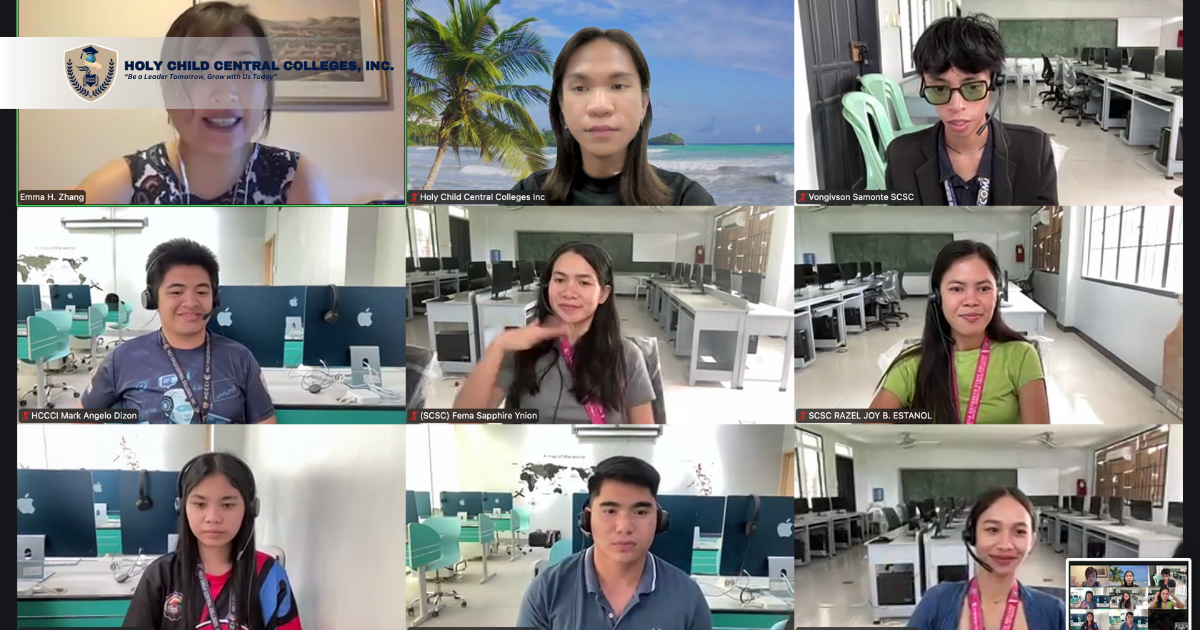
From the outset, the COIL program has been deliberately aligned with the United Nations Sustainable Development Goals. The launch advanced SDG 4 (Quality Education) by internationalizing classrooms and giving students authentic opportunities to practice English through meaningful dialogue. It connected directly to SDG 8 (Decent Work and Economic Growth) by interrogating the realities of fair labor, farmer livelihoods, and the struggle for dignified work in global supply chains. It gave voice to SDG 10 (Reduced Inequalities) by exposing the stark imbalance between the profits of multinational corporations and the daily survival of rural farming households. The dialogue touched on SDG 13 (Climate Action) and SDG 15 (Life on Land) by situating cacao farming within the broader context of environmental degradation, climate vulnerability, and the call for sustainable land use. It engaged with SDG 16 (Peace, Justice, and Strong Institutions) by questioning governance, accountability, and ethical responsibilities in global trade. Above all, the session embodied SDG 17 (Partnerships for the Goals), as HKBU’s leadership, HCCCI’s ORBIT program, and SCSC’s active engagement brought together three institutions to work toward a shared global agenda.
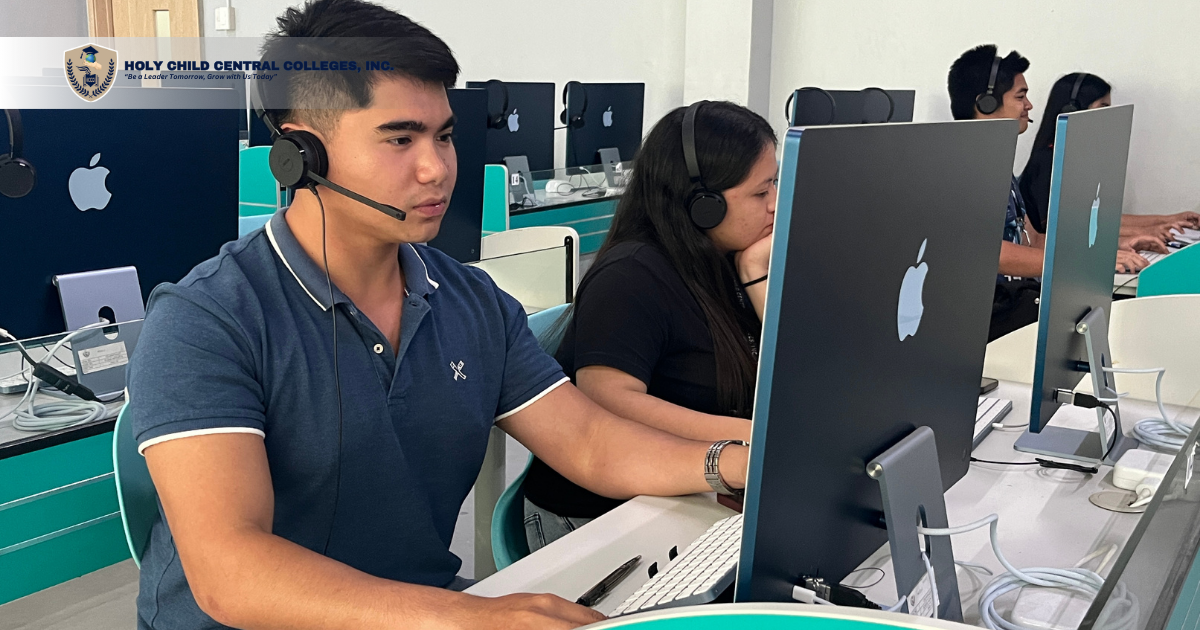
The road ahead promises to be just as transformative as this opening session. In the second and third weeks, students will turn their attention to fast fashion and sustainable consumption, examining how cultural attitudes shape buying habits and contribute to global inequalities, further deepening the conversation around SDGs 8 and 10. The fourth week will expand the conversation to household waste and climate change, where students will share local practices while recognizing the disproportionate impact of climate disruption on poorer nations, an engagement tied closely to SDG 13 and SDG 15.
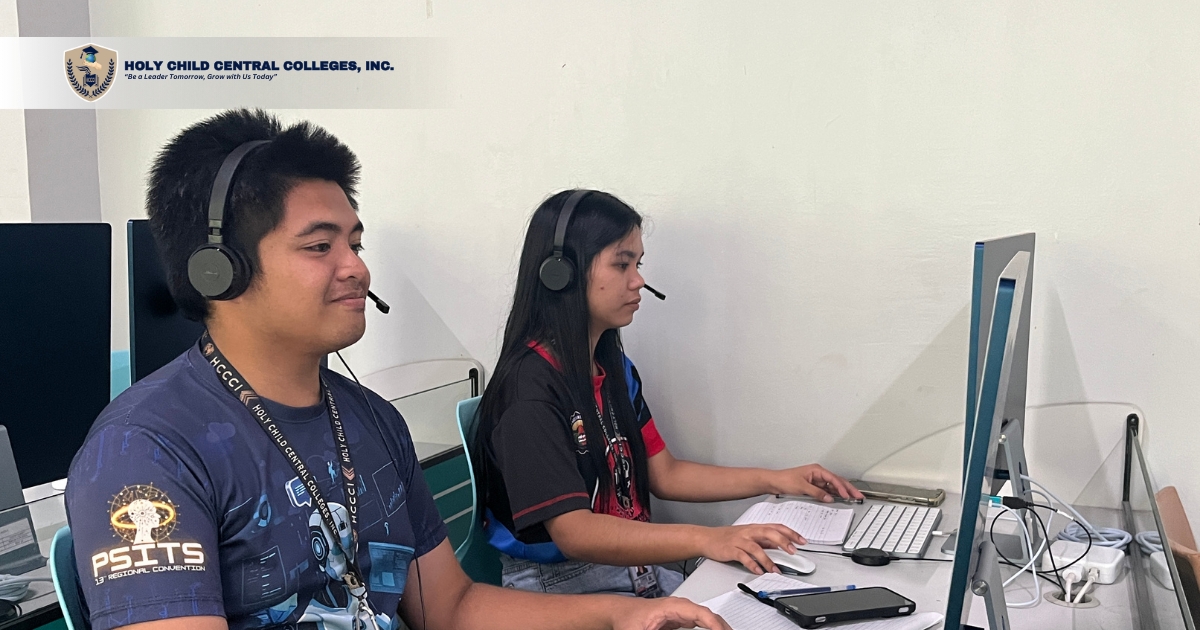
By the fifth and sixth weeks, participants will engage in structured critical dialogue practices, recording their exchanges and refining their ability to think and respond with clarity in English, reinforcing SDG 4’s vision of inclusive and equitable education. These preparatory weeks will build toward the culminating sessions where students will take greater ownership of the dialogue.
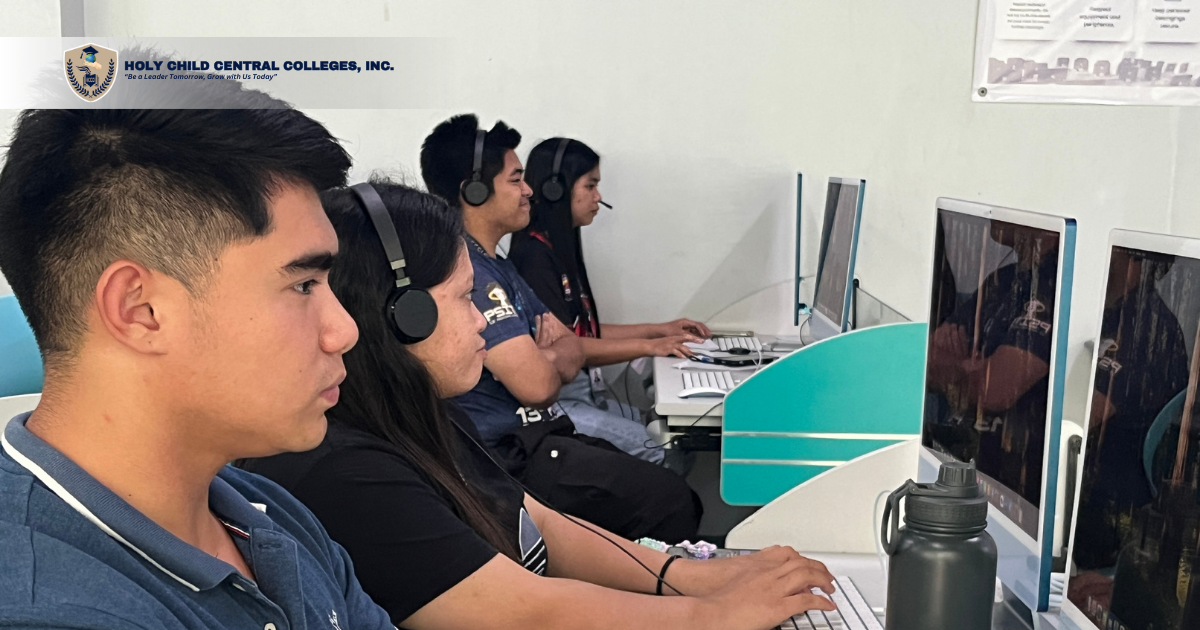
As the program reaches its later stages, themes will shift to the challenges of global labor and the digital economy, the influence of media and technology, the pursuit of racial equality, and the continuing struggle against marginalization in education. Each of these themes will invite students to reflect on equity, justice, and human dignity, aligning their practice with SDGs 8, 10, and 16 while strengthening their intercultural skills.
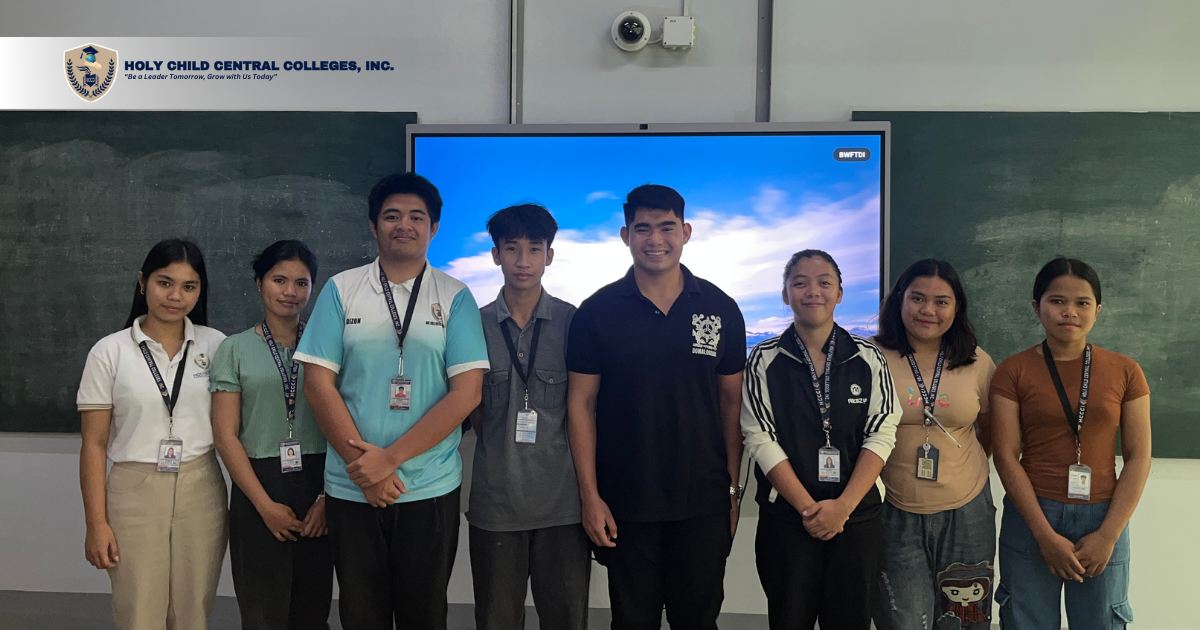
For HCCCI, participation in this HKBU-led initiative affirms its commitment to the ORBIT program. ORBIT—Opportunities for Reskilling, Bridging, Internationalization, and Training — was envisioned to provide students with transformative opportunities to learn, dialogue, and collaborate across borders. Through the HGCI, HCCCI ensures that its learners are not only academically competent but also globally aware, interculturally competent, and socially responsible.
The COIL 2025 Global Classroom Initiative is, therefore a landmark in more ways than one. Spearheaded by Hong Kong Baptist University, strengthened by the participation of South Cotabato State College, and brought to life through HCCCI’s ORBIT program, it demonstrates the enduring power of partnerships to create education that is inclusive, international, and transformative. More than a program, it is a promise: that through dialogue, collaboration, and shared commitment, the next generation of students will be prepared to build a more just and sustainable world — a world envisioned in the Sustainable Development Goals.
